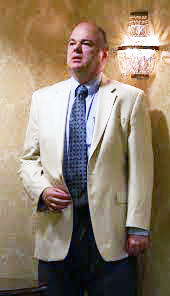Ronald Laing and anti-psychiatry
 What’s written above leads me to a corollary to my book How to Murder Your Child’s Soul. The universal stubbornness or blindness about the ravages resulting from parental abuse is the cause of the existence of psychiatry. Because parents are taboo, for more than a century the profession has tried to find the source of mental disorders on the wrong side, the body. Parents are not only publicly untouchable: we are not even allowed to see their actions in the solitude of our bedrooms. So, when uncontaminated by social underpinnings, a child dares to say that his parental kings go naked, society completely loses its cool and labels the sane one who has told the truth as crazy. Through the involuntary administration of drugs it assaults the brain not of the disturbed parents, but of the child (analogously, in the former Soviet Union it was the sanest people, the dissidents, who were injected with antipsychotics). This was the tragedy that I tried to denounce in my previous books, and it is perfectly explainable if we start from the fact that the whole society strives to be blind on this matter.
What’s written above leads me to a corollary to my book How to Murder Your Child’s Soul. The universal stubbornness or blindness about the ravages resulting from parental abuse is the cause of the existence of psychiatry. Because parents are taboo, for more than a century the profession has tried to find the source of mental disorders on the wrong side, the body. Parents are not only publicly untouchable: we are not even allowed to see their actions in the solitude of our bedrooms. So, when uncontaminated by social underpinnings, a child dares to say that his parental kings go naked, society completely loses its cool and labels the sane one who has told the truth as crazy. Through the involuntary administration of drugs it assaults the brain not of the disturbed parents, but of the child (analogously, in the former Soviet Union it was the sanest people, the dissidents, who were injected with antipsychotics). This was the tragedy that I tried to denounce in my previous books, and it is perfectly explainable if we start from the fact that the whole society strives to be blind on this matter.
A world that insists on seeing things in photographic negative can only (1) attack the child victim, or (2) ignore the adult in a literary search for his lost time. If such a vision in photonegative didn’t exist, bio-psychiatry wouldn’t exist: our eyes and hearts would make us see the toll that abuse entails. Psychic disturbances would be the province of the psychologist, and it would be seen as nonsense that they would be the province of the physician. It is more than ironic that the greatest critics of psychiatry have contributed, with their blindness, to perpetuate the pseudoscience they try to debunk.
To explain this situation, I would like to mention that in 2005 an American wrote me a letter. After reading ‘Why Psychiatry is a False Science’ published as an appendix to my previous book (the article that Laurence Simon refused to publish), he complained that after so many decades of activism critics of psychiatry hadn’t made a dent in the public conscience. The key to understanding this is that the critics themselves suffer from a blind spot in the centre of their vision: something similar to the black strip that appears on pay-TV channels. If the critics refuse to see what is central, that parental abuse causes neuroses and psychoses, and if it is from this black strip that it is intended to enlighten others, it shouldn’t be surprising that the public conscience hasn’t awakened.
______ 卐 ______
Interpolated note for this site:
Exactly the same happens to white nationalists, as Mike has told us on this site: ‘Whatever you want to call it, thinking you can aid in saving the white race while, at the same time, bending the knee to Jewish deities (Yahweh and Yeshua) is some kind of combination of insane, dishonest, cowardly, naive, or very stupid. To bottom line it, it won’t and can’t work’.
I used Mike’s words to debunk MacDonald at the end of my Daybreak.
______ 卐 ______
To clarify this point, I will now refer to those professionals who didn’t suffer from this blind spot. Unlike Szasz and Breggin’s epigones, Lidz, Laing, Arieti and others pointed to parents as responsible for the psychoses in their patients. But even these and many other psychiatrists didn’t sympathise with the victim with the integrity and empathy that Miller and I do. For example, in the Letter I quoted Theodore Lidz:
I also find it very distressing that because the parents’ attitudes and interactions are important determinants of schizophrenic disorders, some therapists and family caseworkers treat parents as villains who have ruined the lives of their patients.
Although I barely caught a glimpse of it when I wrote the Letter, now I clearly see in this sentence the typical fears to speak, without mincing words, of parental guilt. By resisting saying that abusive parents are what they are—the villains in the child’s movie—Lidz advised taking the victim away from his parent. The difference with Miller cannot be greater, who advises keeping the aggressor away from home. What’s the point of moving, say, a pubescent girl raped by her father if the aggressor stays at home, waiting for the next little sister to grow up to molest her too? But sexual abuse isn’t the most common.
At the time of reviewing this chapter, as of mid-2008, twenty-eight nations have prohibited corporal punishment of children. The dates indicate the year the legislation came into force, starting with the country that provided the example: Sweden (1979); Finland (1983); Norway (1987); Austria (1989); Cyprus (1994); Latvia (1998); Croatia (1999); Bulgaria, Israel and Germany (2000); Iceland (2003); Romania and Ukraine (2004); Hungary (2005); Greece (2006), Chile, Holland, New Zealand, Portugal, Spain, Uruguay and Venezuela (2007); Costa Rica, Italy, Japan, Malta and South Africa (2008). In Iceland, a country that illustrates Miller’s advice, the penalties for parents go up to three years in prison or a high fine. Note that these countries have omitted to include psychological and emotional abuse, which can be equally destructive, or even more so, since all bruises are internal (think of the Helfgott case and countless other schizogenic parents). Despite these legislative advances, these societies still cannot see other forms of undermining the emotional integrity of the children. Laing, who did focus on internal injuries, was closer to Miller than Lidz when he came to blatantly blame the maddening parents. But like Szasz, Laing philosophised from an ivory tower: cold and distant reason from the victim and his feelings, as was fashionable in the existential philosophy of his time. Much more reached the real person those who, without any philosophical ballast, addressed the issue of domestic violence: a revolution in psychology that began in the 1970s and 1980s and isn’t yet over. In the first chapter of The Divided Self (1960) entitled ‘The existential-phenomenological foundations for a science of persons’ Laing wrote:
It seems extraordinary that whereas the physical and biological sciences of it-processes have generally won the day against tendencies to personalize the world of things or to read human intentions into the animal world, an authentic science of persons has hardly got started by reason of the inveterate tendency to depersonalize or reify persons.
Laing refers to mental health professionals in particular and the social sciences in general.
If it is held that to be unbiased one should be ‘objective’ in the sense of depersonalizing the person who is the ‘object’ of our study, any temptation to do this under the impression that one is thereby being scientific must be rigorously resisted. Depersonalization in a theory that is intended to be a theory of persons is as false as schizoid depersonalization of others and is no less ultimately an intentional act. Although conducted in the name of science, such reification yields false ‘knowledge’. It is just as pathetic a fallacy as the false personalization of things.
In philosophising about the autobiographical genre, I came to these conclusions on my own. Animism and bio-reductionism are antithetical psychopathologies, one primitive and tribal and the other sophisticated and urban. And this objectifying people reminds me of the dehumanised language of the analyst Solbein: ‘Those are common clinical experiences’. [Interpolated note for this blog: See also Krist Krusher’s recent comment on this site.] Laing continues:
It is unfortunate that personal and subjective are words so abused as to have no power to convey any genuine act of seeing the other as person (if we mean this we have to revert to ‘objective’), but imply immediately that one is merging one’s own feelings and attitudes into one’s study of the other in such a way as to distort our perception of him. In contrast to the reputable ‘objective’ or ‘scientific’, we have the disreputable ‘subjective’, ‘intuitive’, or, worst of all, ‘mystical’. It is interesting, for example, that one frequently encounters ‘merely’ before subjective, whereas it is almost inconceivable to speak of anyone being ‘merely’ objective.
So far I’m in perfect agreement with Laing. Remember the passage of the two universes, the empirical and the interior; and that the existence of the subjective universe is so real that it is enough to think about our death to verify it [mentioned in the first part of the book]. However, Laing adds:
The greatest psychopathologist has been Freud. Freud was a hero. He descended to the ‘Underworld’ and met there stark terrors. He carried with him his theory as a Medusa’s head which turned these terrors to stone. We who follow Freud have the benefit of the knowledge he brought back with him and conveyed to us.
As I pointed out in my previous book, for Jeffrey Masson psychoanalysis was born as a betrayal of women. The Oedipus complex was nothing more than a grotesque attempt to cast guilt on the victims who came to Freud’s office to tell him stories of incest. Analytic theory is the diametrically opposite of wielding the head of the Medusa. If there is such a thing as the antithesis of the hero, that was Sigmund Freud: an ethnic Jew who, although he reached the threshold, was afraid to enter the Underworld and face pure terrors (remember my dreams when commenting on Giorgio de Chirico’s painting). Laing, an idol in my twenties, portrayed Freud in photographic negative and saw the dark as bright. Like many intellectuals of his day, Laing was seduced by the apotheosis of the Vienna quack, something in which Szasz was much more cautious.
When I reread Laing, I did so with a renewed mind after reading Masson, Szasz, and other critics of the psychoanalytic movement. In my rereading of the last chapter of The Divided Self I realised that Julie, one of Laing’s patients, was admitted to a psychiatric ward for almost a decade. If Laing himself hadn’t suffered from the scientific objectivity that he criticises, he would have empathised with Julie denouncing those who locked her up. True, in stark contrast to Szasz and Simon, Laing blamed mothers like Julie’s for their daughter’s psychosis. However, in The Divided Self he never made it clear that the mere fact of locking her up could aggravate her condition. In what I am close to Laing is that when reading his essay one is left under the impression that Julie’s mother, more than psychiatry, ‘murdered a girl’. These are the words of Julie speaking parabolically about herself: she meant that her mother murdered her tender soul. Now, the person Julie, not the object of Laing’s essay, needed to be taken away from the psychiatric hospital and from the mother who committed her; to take her to live far from her ‘murderer’. When she began her psychotic crisis at seventeen years old and said ‘a little girl was murdered’ Julie thought that she should inform the police about the crime.
Her delirium was closer to Miller’s posture than to the psychiatric that locked her up. The laws of a nation should seek to lock up the maddening parent, not the victim (who, in a state of florid psychosis, would have to be cared for in a non-repressive enclosure like the one that Laing presided over). In a just society that doesn’t see reality in the photonegative, this would naturally be done through the police. But in her chapter on Julie, Laing never suggests this. In fact, both the word victim and an exhortation of justice are the great absent in The Divided Self. Also, Laing doesn’t denounce the psychiatric re-victimisation of other women clearly maddened by their family. In another of his famous books, The Politics of Experience, he limits himself to reproaching society for misunderstanding psychoses. Sometimes Laing even seems to participate in the universal fear of touching the parent. Speaking of Julie’s mother, Laing mentions one of the fashionable concepts in the 1950s, the ‘schizophrenogenic mother’ but is quick to add that, fortunately in his opinion, there was no other ‘witch hunt’ in history: an equivocal comparison with women labelled witches centuries ago. If there is one thing the world needs, through the law that Miller outlines, it is to bring to justice every parent who murders children souls. The basic pathology of our society is that this crime, and this crime alone, must remain not only unpunished but invisible. For example, Silvano Arieti, Laing’s colleague across the Atlantic, talked a lot about psychotherapy in Interpretation of Schizophrenia. But he never proposed any social engineering to redress the problem of maddening parents; and he didn’t do so despite the fact that Arieti blames them for the psychotic state of his patients.
‘To my mother and father’ reads the dedication of Laing’s The Divided Self. ‘To my parents’, the dedication of Arieti’s Interpretation of schizophrenia (etymologically, schizophrenia means a divided self). Naturally, the most sophisticated thinkers of insanity also had parents. (In my next book we will hear a class about the problem of attachment with the perpetrator that explains the lukewarmness of Laing, Arieti and others.) Not until the middle of The Divided Self Laing speaks openly about abusive parents. In contrast, Miller and I do it from the first page of our writing, and passionately.
After reading The Divided Self, the best of Laing’s essays, I was convinced that there can be no such thing as a science of subjects. Seen from the outside, the subject inevitably becomes an object: an offense for those who want to speak with their own voice. This is precisely the foundational flaw of academic psychology. If science is the study of the empirical world there can be no such thing as a ‘science of persons’, only people writing about their lives. Although Laing had much more heart than Freud, and this puts him on a higher level to understand the tragedy of the person in crisis, he starts from the same objectivist position. His essays and those of Lidz are, at best, a solidary approach to the disturbed subject. It’s funny that in The Divided Self Laing quotes Sartre: ‘I am not fond of the word psychological. There is no such thing as the psychological. Let us say that one can improve the biography of the person’. I would go further. The direct study of a soul in psychotic hell can only come from the pen of someone who, like Modrow, speaks in the first person singular.
 Finally, I can be told that since the mental health professions are inherently corrupt, I shouldn’t have considered even anti-psychiatrists but only survivor groups. Common sense tells us that, unlike the professionals who are part of the system, in self-help groups we will find the much sought after help. But let’s remember what happened with those filmmakers when I said that the Alcoholics Anonymous therapies were skin deep because they omitted the issue of parental abuse. This omission is endemic in self-help groups and even in less superficial associations than AA and its countless imitations of the twelve steps. For example, in the texts that are circulated in a group called Co-counselling I was stunned by the absolute omission of the role that parents play in the emotional problems of their children. Nothing is more alien from the ideology of this group than to fight for the legislative milestones of those countries that have prohibited corporal punishment of children. And exactly the same can be said for any other self-help group. Needless to say, not attacking the root cause is, as I told the AA believer who went mad at me, an epidermal remedy.
Finally, I can be told that since the mental health professions are inherently corrupt, I shouldn’t have considered even anti-psychiatrists but only survivor groups. Common sense tells us that, unlike the professionals who are part of the system, in self-help groups we will find the much sought after help. But let’s remember what happened with those filmmakers when I said that the Alcoholics Anonymous therapies were skin deep because they omitted the issue of parental abuse. This omission is endemic in self-help groups and even in less superficial associations than AA and its countless imitations of the twelve steps. For example, in the texts that are circulated in a group called Co-counselling I was stunned by the absolute omission of the role that parents play in the emotional problems of their children. Nothing is more alien from the ideology of this group than to fight for the legislative milestones of those countries that have prohibited corporal punishment of children. And exactly the same can be said for any other self-help group. Needless to say, not attacking the root cause is, as I told the AA believer who went mad at me, an epidermal remedy.

